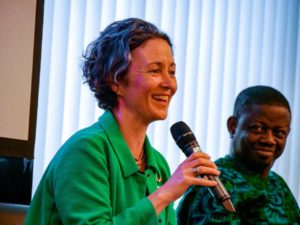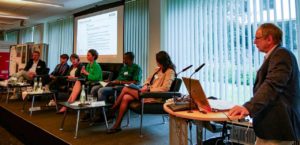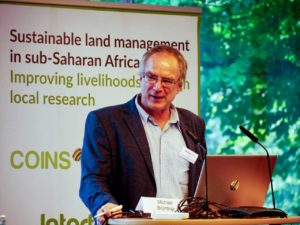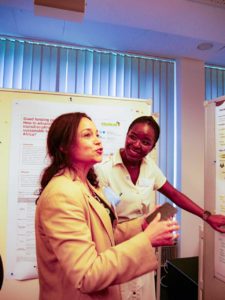From 3 to 13 June, the preliminary negotiations for the UN Climate Change Conference in Baku took place in Bonn, accompanied by extreme weather events worldwide. The World Day to Combat Desertification on 17 June emphasised the importance of soil protection. At an event to mark the 30th anniversary, experts discussed sustainable soil policy and intergenerational justice.
This year’s preliminary negotiations of the Subsidiary Bodies for the World Climate Conference in Baku, which will take place in November, were held in Bonn from 3 to 13 June. Underlining the importance of international climate policy, the period immediately before, during and after the conference was characterised by extreme weather events in various regions of the world: heavy rain and flooding in Bavaria and Baden-Württemberg, as well as in large parts of Chile; temperatures of up to 45 degrees in Turkey and Greece. However, these events are just one example of the increasingly noticeable effects of global warming and the loss of biodiversity. At the same time, the World Day to Combat Desertification and Drought, which takes place every year on 17 June, reminded us of the importance of taking action in the area of soil protection in order to counteract progressive soil degradation.
At an event organised by the Federal Ministry for Economic Cooperation and Development (BMZ), the City of Bonn and the UNCCD to mark the 30th anniversary of the World Day, Prof. Anna-Katharina Hornidge spoke about promoting intergenerational justice and strengthening land policy. Following a keynote speech by Prof Dr Johan Rockström, Director of the Potsdam Institute for Climate Impact Research, she discussed the concrete proposals of the younger experts with representatives of the workshop „United for Land -Youth Voices towards UNCCD COP 16„. Hornidge pointed out that the result of the previous EU elections can be an indicator that there is a large gap to the younger generation. With regard to the significance of the UNCCD and the demands of younger experts, she emphasised the importance of context-specific systems. Using the example of „sustainable intensification“, she spoke about the local, context-specific negotiation of these systems in order to serve as effective instruments for the protection of soil and land.
The team of IDOS’ research project ‚INTERFACES‘ also organised an evening event on the topic of „Science in Support of Combatting Land Degradation“ in collaboration with the NGO „Let’s Plant!“ to mark the 30th anniversary of the UN Convention on 18 June. During the panel discussion, Anna-Katharina Hornidge discussed approaches and challenges for combating desertification, land degradation and drought with Benjamin Abugri (FARA), Bettina Iseli (WHH), Andrea Meza Murillo (UNCCD), Dr Anneke Trux (GIZ) and Dr Andreas Quiring (AHA). The evening, moderated by Dr Michael Brüntrup, head of the INTERFACES team at IDOS, offered a platform for exchange between science, politics and practice to promote sustainable land use. The focus was on the question of how science can support sustainable land management. Using numerous examples, the panellists showed that the involvement of various interest groups is crucial in order to find the right people in the right place at the right time. Community-based and participatory approaches are very important in research, where failure is very much part of a peer learning process for knowledge sharing. These experiences need to be used to create an enabling policy environment that ensures behavioural change and the adoption of innovations for sustainable land management.




